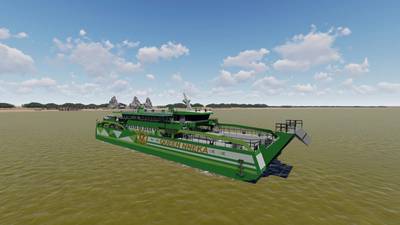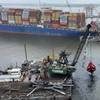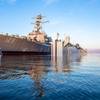Winners of Student Ferry Design Contest Announced
The Worldwide Ferry Safety Association (WFSA) announced the awardees for the 11th Annual Student Competition for a Safe Affordable Ferry. Winning teams receive monetary awards and are invited to speak about their work at an international conference; this year- the venue will be Interferry’s 48th annual conference, to be held in Marrakesh on October 28-29, 2024.
For this year's WFSA competition, the Terms of Reference (TOR) called for a RoPax vessel to accommodate 150-200 passengers, as well as space for cargo and 15-20 four-wheeler vehicles, which could include lorries and trucks. The vessel is intended to ply a shallow-drafted stretch of the Niger River in southern Nigeria’s Anambra State, from Onitsha Jetty to Idah Jetty and from Onitsha Jetty to Ndoni Jetty.
Dr. Roberta Weisbrod, the Executive Director of WFSA said, “The competition comes as Nigeria has rapidly created a robust and sustainable ferry system for the city of Lagos. The question now is whether the inland waterways of Nigeria – the Niger River – could enjoy similar successes?”
Lagos, Nigeria’s capital, and the surrounding region, has seen a dramatic expansion of ferry service since 2007- when only one route was operating. Presently, there are 365 ferries serving 2 million passengers monthly through 19 routes, calling at 12 terminals. The Lagos State Governor recently commissioned 15 additional ferries, built to international standards by Caverton Marine Ltd., a Lagos-based Nigerian company. with 10 more ferries to be commissioned by the end of the year.
However, ferries operating outside of Lagos, in other parts of Nigeria on the Niger River system, have had a poor safety record. Over the past two years, over 100 people died or were missing in 6 accidents, creating an issue so serious that the President of Nigeria has voiced an intention to look closely at ferry safety. The TOR for this year’s competition were drafted by Nigerian Navy Lieutenant David Chukwudera Okafor.
The first-place award winning team from Sepuluh Nopember Institute of Technology, ITS Surabaya, designed an aluminum catamaran powered by CNG with alternative power sources including solar and batteries. The vessel is 50 m in length with a displacement of 209.6 tons with an estimated cost of $2.7 million.*
The students met the challenges due to limited shipbuilding facilities in Nigeria, by using the precut method, with construction in a shipyard in Port Harcourt, and then divided into several blocks for transportation by truck for assembly at a small yard near the Niger River.
The second-place award winning team is from the Bangladesh University of Engineering and Technology in Dhaka. The design is for an aluminum catamaran hull, 40m length, 142 tons would cost around $0.8 million. The main fuel is CNG to run the electric motor, with solar power supplements. Judges considered the concept of a tiltable propeller system as brilliant and the hydrokinetic turbine as interesting.
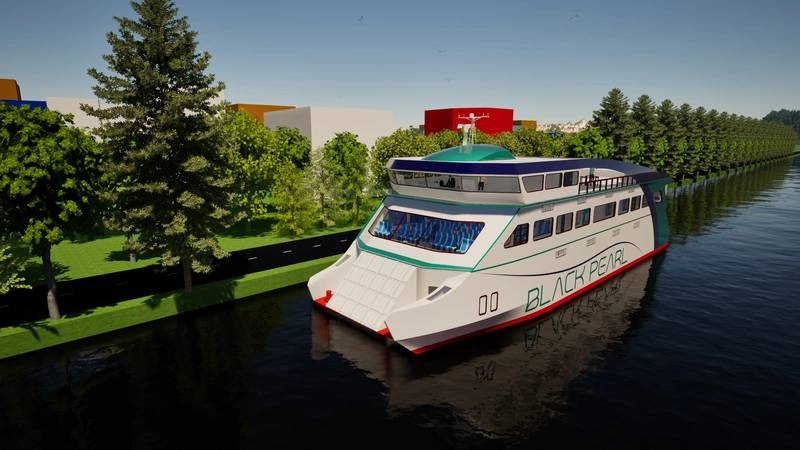 The second-place award winning design (Image: WFSA)
The second-place award winning design (Image: WFSA)
The third-place award winning team is from Universitas Indonesia in Jakarta. Their steel barge hull design with the precut fabrication technique clearly reduces the cost of production, estimated at $1.5 million. The vessel is powered by diesel-CNG with solar power supplement. There would be fore and aft loading. The tilt up thrustmaster is good for maintenance and repair.
Interferry’s CEO Mike Corrigan said: “We congratulate all the winners and look forward to welcoming them on the main stage to accept their awards from the WFSA at our annual global conference.” The WFSA is profoundly appreciative of the TK Foundation’s support of maritime student participation at important maritime conferences- by funding travel and lodging.
WFSA raises and transmit the monetary awards to the awardees, $5,000 for first prize, $3,000 for second prize, and $1,000 for third prize.
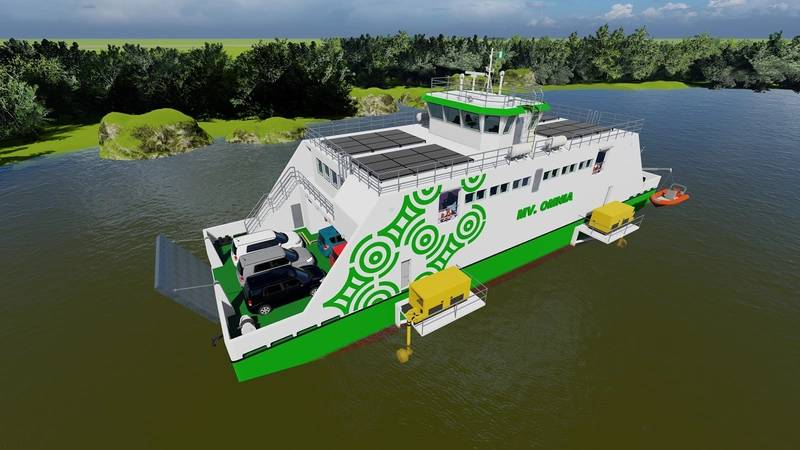 The third-place award winning design (Image: WFSA)
The third-place award winning design (Image: WFSA)



